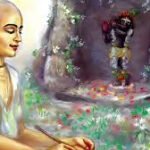New Delhi, August 2025 — The Promotion and Regulation of Online Gaming Act, 2025 has shut down India’s booming real-money gaming industry. For years, apps like Dream11, MPL, WinZO, My11Circle, and RummyCircle sold Indians a dream: “Play, use your skill, win crores.” The reality? Millions lost money while the faces promoting these apps never even played them.
A Game They Never Played
Cricketers, Bollywood stars, and YouTubers made crores for shouting three words: “Apni team banao.” But here’s the truth nobody said out loud:
They never picked teams, never placed bets, never played a single contest. Their role was to read scripts, smile into a camera, and convince fans that winning crores was just one click away. For them, it wasn’t a game — it was just another brand deal. For ordinary people, it became a trap.
Fans believed their idols were playing alongside them. In reality, those idols were being paid to sell an illusion.
The Biggest Gamble Was Trust
These apps built an empire on trust. They borrowed credibility from cricket, influencers, and mass advertising.
YouTubers with millions of subscribers plugged fantasy codes in comedy sketches and gaming videos, even though most had zero interest in the apps. Meme pages and influencers flooded Instagram with reels of “instant winners.” Commentators and anchors slipped fantasy slogans into match talk as if it were part of the sport.
The message was everywhere: everyone is playing, why aren’t you?
But the math was brutal. Out of every 100 players, 99 lost money. The winnings of the 1% were nothing but the losses of the many.
How Much Was Spent to Fool You
Industry filings reveal staggering sums:
Dream11 spent nearly ₹3,000 crore in FY23 on ads and promotions. Across the sector, annual spends crossed ₹5,000 crore, with much of it pumped into celebrity endorsements, YouTube integrations, and influencer campaigns. Influencer agencies admit that 20–30% of creator income in recent years came from fantasy and betting apps.
This wasn’t marketing — it was psychological conditioning. The goal was to make fans forget they were gambling, and believe they were “using skill.”
What Disappears Now
With the Act in place, an entire façade collapses:
No more jerseys covered in fantasy logos. No more superstars pretending to play apps they never downloaded. No more influencer reels showing fake excitement about “winning lakhs.” No more ads hijacking cricket matches with “Apni team banao, jeeto crore.”
What’s left is a ₹5,000 crore vacuum — but also a chance to rebuild sports and content ecosystems without the stink of gambling dressed as entertainment.
Cricket Fever or Gambling Fever?
Let’s be honest: the so-called “cricket fever” of recent years was not just love for the game. It was gambling fever, injected into cricket by fantasy apps. Every six, every wicket, every toss carried the illusion of instant money.
Now, with the ban, cricket may breathe again as cricket — not as a lottery.
Bottom Line
The fantasy gaming boom wasn’t just about apps. It was about idols selling lies, influencers cashing in on illusions, and fans paying the price. The stars never played. The YouTubers never played. The winners were always scripted, the losses always real.
With the Online Gaming Act, the lights are out on this great illusion. And maybe, just maybe, India will finally see that the biggest gamble was not money — it was trust.




























